
Arquivo para a ‘Linguagens’ Categoria
Contemplation and treasures
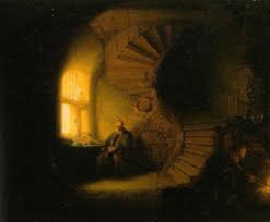 No, it is not about the art of observing nature or the universe, as the act of observing is also an “active life” as there will certainly not be any interpretation or detail that catches our attention.
No, it is not about the art of observing nature or the universe, as the act of observing is also an “active life” as there will certainly not be any interpretation or detail that catches our attention.
It is about other meanings: listening without interpreting, looking with a purified gaze and understanding what is incomprehensible to human reason, so it is not a rational attitude, nor a madness or sensitive delirium, it is an exercise of “inactivity” writes Byung- Chul Han.
The author writes in Vita Contemplativa: ou sobre a inativa (Han, 2023, p. 11): “Inactivity constitutes the Humanum. What makes doing genuinely human is the amount of inactivity in it. Without a moment of hesitation or restraint, acting degenerates into blind action and reaction. Without rest, a new barbarism emerges.” (above the painting by Rembrandt The Philosopher).
Therefore, contemplative inactivity is not to be confused with laziness, absence of action, but a rest for clairvoyant action and deep speech, says the author: “It is silence that gives depth to speech. Without silence there is no music, but only noise and noise. Play is the essence of beauty. Where only the scheme of stimulus and reaction, of lack and satisfaction, of problem and solution, of objective and action, prevails, life is reduced to survival, to naked animal life” (idem) and it is not by chance that it is confused with current modern life .
We are not machines always destined to function, the true life of conscious action begins when the concern with survival ceases (also in the sense of prolonging the experience) and the need for raw and non-bare life arises.
The confusion arose because of the confusion between history and culture, not the history of ideas (in the sense of the Greek eidos), but that which ignores culture and deals only with the pleasure, power and oppression of people, says the Han: “ action is, in fact, constitutive for history, but it is not the formative force of culture” (Han, 2023, p. 12) it may even be a consequence, but made of silent reflection it is just noise and impulsive manifestation.
And he adds in the same passage: “Not war, but celebration, not weapons, but jewelry, are the origin of culture. History and cultural do not coincide” (Han, idem).
“Jewelry” may seem strange, but the core of our culture is ornamental. It is situated beyond functionality and utility. With the ornamental that is emancipated from any purpose or utility, life insists on being more than survival” (idem).
This is the biblical example of eternal life, where the narrator explains Jesus’ speech: the kingdom of God (Mt 13:44) “is like treasure hidden in the field. A man finds him and keeps him hidden. Filled with joy, he goes, sells all his possessions and buys that field” and he will also say this about a pearl buyer who finds a large pearl.
HAN, Byung-Chul. (2023) Contemplative Life. Trans. Lucas Machado, Brazil, RJ: Petropolis.
Build a life and not exclude
Both Nietzsche in The Gay Science and Peter Sloterdijk’s Post-God stated the death of God, in fact it is just an attempt to kill God, because if he does not exist we cannot kill him and if he exists he is immortal, so we can only just erase it from our mind temporarily as it will come back intuitively, the proof is that atheists do not ignore Him.
Sloterdijk’s Post-God stated the death of God, in fact it is just an attempt to kill God, because if he does not exist we cannot kill him and if he exists he is immortal, so we can only just erase it from our mind temporarily as it will come back intuitively, the proof is that atheists do not ignore Him.
Nietzsche’s text is clear, but it was also distorted: “The mad man threw himself into their midst and pierced them with his gaze. ‘Where has God gone’, he shouted, ‘I will tell you now! We killed him – you and me. We are all your killers! But how did we do this? How do we manage to drink the sea entirely? Who gave us the sponge to erase the horizon? What did we do, untying the earth from its sun? Where are you moving now? Where do we move? Away from all the suns?” (Nietzsche, The Gay Science, § 125)
Thus, not being able to kill him, they destroy his “symbolic” values, such as the Holy Supper in the Olympics, for example, or distorting the true history of the God-man: Jesus, as did the idealist theology of Ludwig Feuerbach that we recently posted, created an “absolute” empty and abstract, which cannot be God as a trinitarian person.
However, the reaction to the Hegelian Theocide, that of Feuerbach, in which God only exists in the mind and thus is something of ideal thought and only with idealistic “transcendence” do we reach him, there is the religious reaction of closing oneself in the “community of the elect” , of God’s favorites, those chosen by criteria that a certain community determines and the rest are lepers, public sinners and unworthy of the “kingdom”, bad seed.
The parable of the tares and the wheat is clear, both are born in the same environment, but one does not bear fruit, will not participate in the wheat harvest and will be separated like chaff.
In a way, the reaction to this elevated God, distant from men, “all powerful” is nothing more than a vision of power that is also mundane and temporary and a form of despiritualized asceticism, the life of “exercises” as advocated by Peter Sloterdijk.
Spiritual truth is one in which everyone is included, there is unity and respect for all and no one is seen as a leper or bad seed, this is a Pharisaic interpretation, but it is clear that good seed bears good fruit so one can look at reality in its own way. back, but without prejudiced or exclusionary judgment.
Founded on perfectionism and extreme moralism, morality is important and should not be denied, however, taken to the extreme it makes “addiction” much closer and more likely to fall into it, that is, they are in fact false moralists because they are unable to put into practice what they defend, and it is these false exercises that lead to a practice of deviations and moral aberrations.
The union of these concepts with true humanism, one whose inspiration is divine, cannot and should not lead to attitudes of exclusion, isolation and lack of charity.
Everything has to be thought of in a balanced way, from politics to religiosity, from family to social life, from social action to contemplation.
Acts of sabotage and opening of the Olympics
Hours before the opening of the Paris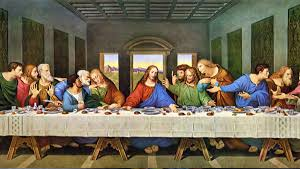 Olympics, several “acts of sabotage” were carried out in a “prepared and coordinated” manner, affecting France’s railway lines, French Prime Minister Gabriel Attal described the event, according to French sources, as “massive and serious” and thanked the firefighters and expressed indignation at the disruption to the movement of tourists and French people.
Olympics, several “acts of sabotage” were carried out in a “prepared and coordinated” manner, affecting France’s railway lines, French Prime Minister Gabriel Attal described the event, according to French sources, as “massive and serious” and thanked the firefighters and expressed indignation at the disruption to the movement of tourists and French people.
The opening ceremony had a strange message and without the beauty that always accompanied it in previous versions, Lady Gaga’s performance was recorded according to explanations “due to the rain”, a ceremony of trans people at a table seemed like an irony with the holy supper (that famous painting by Leonardo da Vinci) and a masked man who appears with the Olympic torch looks like a character from the Assassin’s Creed video games.
Also the white horse simulating riding on the water is something of enigmatic symbolism, perhaps the horse of the apocalypse or some allusion to war.
Except for the famous French song L’Hymme á l’amour by Edith Piaf, performed by Celine Dion, several French athletes paraded with the torch and lit the Olympic cauldron in a balloon, the lighting of which is maintained by an electrical system.
There was also a blackout on Saturday in Paris and the Olympic Committee itself, through the spokesperson for the Organizing Committee of the Paris 2024 Olympic Games: “we assume that we have crossed the line”.
The wars continue, the hope for peace increased since Russia for the first time admitted a return to the “Istanbul agreement” prior to the invasion of Ukraine.
Social promotion and public goods
The promotion of social life and the true 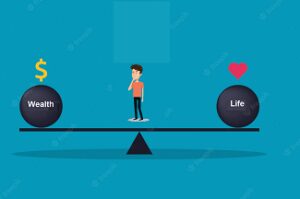 administration of public goods (water, energy and sanitation) are the true basic inputs for the social promotion of human life, but this is what is only seen in electoral advertisements, they show riches that will be accessible to everyone , but few and only at election time.
administration of public goods (water, energy and sanitation) are the true basic inputs for the social promotion of human life, but this is what is only seen in electoral advertisements, they show riches that will be accessible to everyone , but few and only at election time.
Talking about hunger is the slogan of many elections around the world, but the conditions that are sustainable for this are little or almost never understood, and they depend on a greater balance in world markets and guarantees for imports and exports of basic inputs, including for health.
Economic crises, basically, are an imbalance between the production and distribution of essential goods and consumption, and arise in isolated sectors of the economy, it is not necessary for there to be a shortage of various goods, it is a cascading imbalance and capital and stock exchanges are more reflections of the origin of these crises, which include wars and revolutions.
Natural factors can also influence (droughts, floods, epidemics or some major event such as an earthquake or an atomic crisis that is now possible).
Therefore, the true treasures must be those that lead humanity to greater balance and sustainability, including care for nature, as the production of food, energy and even less essential consumer goods depend on it.
The true treasures, even if we only think about the earthly ones, forgetting the spiritual ones that give us comfort and true joy, are those that provide greater civilizing understanding, tolerance between races and cultures, and those that include the spiritual plane.
The increasingly growing culture of individualism, hatred (of different types), the accumulation of goods as a symbol of happiness, the consumption of even the human body and mind lead to the opposite path of those who want to build real treasures.
Illusions pass away, moths consume, time rusts or rots, but what remains is essential and a true spiritual asceticism depends on it, a good that glimpses into future generations, and for those who believe, eternity.
Illusions pass away, moths consume, time rusts or rots, but what remains is essential and a true spiritual asceticism depends on it, a good that glimpses into future generations, and for those who believe, eternity.
Thus, the current crisis is, at its base, a crisis of thought, of ethical and solidarity values, of mutual respect and of clarity about what it means to build true treasures.
In the Bible, Jesus takes a few loaves and fish and distributes it, the meaning is very direct and simple: little distributed feeds everyone, and poorly distributed causes opulence for some and hunger and misery for many.
Spirit and power
Power and autorithy seem to get confused, but this is not true as authoritarian governments are growing in the world and this has always been a bad symptom of civilization because it indicates both disputes and, at their limit, wars.
as authoritarian governments are growing in the world and this has always been a bad symptom of civilization because it indicates both disputes and, at their limit, wars.
Byung-Chul Han in his book “In the Swarm” explains after saying about the necessary distance in the public sphere, that the “waves of indignation indicate, moreover, a weak connection with the community” (Han, In the Swarm, 20,18, pg. 22) and he has a specific book about power.
The book What is Power? (2019) has a long analysis of the issue in Hegel, this is justified both by the influence on Western thought and by the incidence of the vision of power that affects the entire public sphere, but we highlight his vague concept of the Absolute and the influence even religious , seen in the previous post.
Its analysis is important when it refers to ontological concepts, thus defining that “the entity is, even when it is finite, surrounded by the other” (Han, 2019, p. 110) and the Being must generate a negativity in itself, this is not the case here of “bad thoughts” but the concept that cites in Paul Tillich (1886-1965) that the power of being as “the capacity of living beings to overcome negativity, or as he says, “non-being”, that is, the who does not involve it in self-affirmation” (pg. 111).
Quoting him, Han states: “one has more power to be, because it must have been overcome but not to be, and as long as one can overcome it. When you can no longer bear it or overcome it, then it is total impotence, the end of the power of being, the event. This is the risk of every living being” (Han, 2019, p. 111).
He cites Foucault’s thesis that the human being would be “the result of submission” (pg. 118) and Hegel who thinks that power should act primarily in a “non-repressive way” (pg. 119) however, both do not abandon the idea from the Absolute, which actually comes from Machiavelli’s Prince and Thomas Hobbes’ Leviathan, and as the author says: “power promises freedom” (pg. 121).
The need to create a “neurotic” religion of power, for Hegel, would come from the idea of God, the power that He has the power to “be himself”, this comes from idealism that does not overcome the division between subject and object, or be the Creator and the created (beings and entities) are not composed.
There is no doubt that power, without the necessary negativity of non-being (the inclusion of the Other) is a neurosis as Hegel says, and thus its “god” or “the spirit” “would still be an appearance of this neurosis” (Han, 2019 , p. 121).
“The pain of finitude can perfectly be the pain of any limit that separates me from the other, which can only be overcome by the creation of a particular continuity… it does not have the continuity of the self that power creates. She does not have the intention of returning to herself” (Han, 2019, p. 121).
Hegel’s neurotic power is not that of the Creator, it is of the being caged in the self, incapable of looking at and serving the Other, of leaving the self, of denying oneself to serve the Other, it is a neurotic power.
The idealistic religion
Among the Young Hegelians, those who along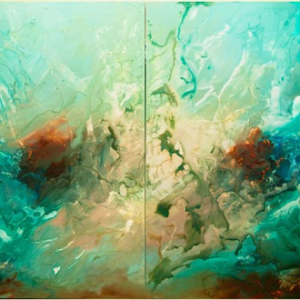 with Marx criticized the “old Hegelians”, especially David Strauss and Bruno Bauer, was Ludwig Andres Feuerbach (1804-1821) much better known for Karl Marx’s “Theses on Feuerbach” than for his own work, but his concepts, although criticized by Marx, also influenced him in addition to the other “new Hegelians” also known as the “Hegelian left”.
with Marx criticized the “old Hegelians”, especially David Strauss and Bruno Bauer, was Ludwig Andres Feuerbach (1804-1821) much better known for Karl Marx’s “Theses on Feuerbach” than for his own work, but his concepts, although criticized by Marx, also influenced him in addition to the other “new Hegelians” also known as the “Hegelian left”.
Feuerbach, coming from a Catholic environment, was educated in Protestantism, from a young age he was oriented towards religion, beginning his studies at the University of Heidelberg, but upon meeting Friedrich Hegel, he abandoned theology and became a student of this philosopher for two years, which provoked profound changes in his thinking and creates what I call here “idealistic religion”, but the God of Christianity is no longer Feuerbach’s god.
Hegel’s idea of the absolute is well known, where his “in itself” which is his “one” is not alienated from matter to finally emerge as “Absolute Spirit”, but man, as a conscious species, is the infinite itself and absolute, being man’s reason for his “liberation” to the detriment of indoctrination or Christianization (Feuerbach, 2013, p. 2-23) this God that man “imagines” is for the young Hegelian now in fact his own being, its own essence, it is necessary to understand that Being for idealists is not ontological Being, but rather an “anthropological” being.
Thus, religiosity, in the idealist analysis, would not be linked to an immaterial being, which transcends the human (idealist transcendence is the knowledge of the object), it is not a timeless and creative Being, but nature itself, in another way Spinoza also explored this .
Thus Feuerbach understands that man’s relationship with his “god”, which is different from other “young Hegelians” (Marx will criticize him), his god or gods, is founded on his own ex-sistence, a subject also explored in ontology, but seen as a relationship with “time” or temporal being.
The idealistic god is the one that man externalizes “is nothing more than the divinized essence” (Feuerbach, 2009, p. 29), in a way even more so as “the history of religion is the history of man” (Feuerbach, 2009 , p. 30) and here lies the dividing line with Marx because he sees history as his “mode of production”, the relationship with work and the means of production to carry it out: feudalism, capitalism, etc. Thus Feuerbach understands that man’s relationship with the supersensible, which for him “exists”, that is, has its ex-sistence, is in fact an “aesthetic pathology”, an amalgamation of mystical feelings that are at the same time the foundation and promoter of religiosity. : “Mourning and pain at the death of a person or at the diminution of light and heat, joy at the birth of a person, at the return of light and heat after freezing winter days or at the harvest, terror at phenomena in themselves terrible or at the least in man’s imagination… (Feuerbach, 2009, p. 49). So the big mistake, even for “religious people”, is to separate substantiality from spirituality, which is, in our view, the essence of false contemporary asceticism.
Feuerbach, Ludwig. (2009) Preleções sobre a Essência da Religião. Trad. José da Silva Brandão. Petrópolis/RJ. Editora Vozes.
Feuerbach, Ludwig. (2013) A Essência do Cristianismo. Trad. José da Silva Brandão. Petrópolis/RJ. Editora Vozes.
Painless society and the midnight library
Byung-Chul Han wrote the Palliative Society,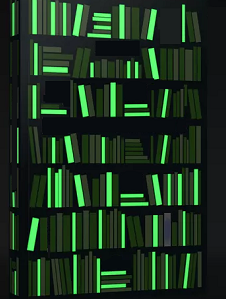 not only about the Pandemic, but also and above all about the search for a world without pain, we are even capable of suffering and great efforts due to narcissism and personal aesthetics, what Peter Sloterdijk called of “the exercise society”, but a despiritualized asceticism.
not only about the Pandemic, but also and above all about the search for a world without pain, we are even capable of suffering and great efforts due to narcissism and personal aesthetics, what Peter Sloterdijk called of “the exercise society”, but a despiritualized asceticism.
The novel by English writer Matt Haig: The Midnight Library, tells of a 35-year-old woman full of talents and few achievements, regretting her bad choices in life, she wonders if she could have lived differently, after losing her job and his cat is run over, he decides to take his own life, in the stage between life and death he finds the Midnight Library (picture illustration brazilian cover), with the possibilities of lives he could have lived.
With the help of an old friend, she decides to move to Australia and renew old relationships, discovering that it is possible to review life and undo something that we regret, to have hope.
Among Nora’s initial dramas, I highlight the part where she says: “I get a headache looking at… cell phones”, it’s not just her, it’s a lot of people, this takes away the capacity for reflection and silence that Byung-Chul Han claims, the one that can make us reflect on life and our actions.
Palliative society, according to Byung-Chul Han, has nothing to do with palliative medicine, explains the Korean-German philosopher: “Thus, every critique of society has to carry out a hermeneutics of pain. If pain is left solely to the burden of medicine, we miss its character as a sign” (Han, 2011).
It reminds me of a saying by Ernest Jünger: “Tell me your relationship with pain, and I will tell you who you are!”, so every social or social suffering must precede and precede moments of reflection, or as Byung-Chul likes it, a “Contemplative Life ” another essay by the author.
“The survival society completely loses the meaning of the good life. Enjoyment is also sacrificed to health elevated to an end in itself” (Han, 2021, p. 34), that is, the very absence of a “hermeneutic” of pain can lead to the end of the meaning of life.
It also clarifies Agamben’s meaning of homo sacer and via nude: “Without resistance we subject ourselves to the state of exception that reduces life to bare life” (Han, 2021, p. 34).
Anguish, loneliness and depression do not only have social causes, but what we feed our souls on, in the biblical passage that the prophet Isaiah goes to visit Ezekiel who is stricken with a deadly disease (Is 1,1-6) after the supplications of Hezekah through the word of Isaiah God frees him not only from the disease, giving him another 15 years of life, but also “I will free you from the hands of King Assyria, together with this city, which I place under my protection” ( Is 1:6).
Of course, the social solution is not magical, but we face it better if our pain is understood.
Haig, M. (2020) A Biblioteca da meia-noite (The midnight library). Translation: Adriana Fidalgo, Brazil, RJ: Editora Record, 2020.
Han, Byung-Chul. (2021) A sociedade paliativa: a dor hoje (The palliative society: pain today). Trans. Lucas Machado. Brazil: Rj, Petrópolis: Vozes.
Fatigue and true rest
Giving a psychological and sociological picture of contemporary society Byung-Chul Han describes her as having “Neural diseases such as depression, attention deficit hyperactivity disorder (ADHD), borderline personality disorder (BPD) or Burnout Syndrome (SB) determine the pathological landscape of the beginning of the 21st century (HAN, 2017, p. 7).
of contemporary society Byung-Chul Han describes her as having “Neural diseases such as depression, attention deficit hyperactivity disorder (ADHD), borderline personality disorder (BPD) or Burnout Syndrome (SB) determine the pathological landscape of the beginning of the 21st century (HAN, 2017, p. 7).
Using a concept from his PhD advisor (he did his thesis on Heidegger) Peter Sloterdijk, his analysis extends to what he calls “the object of immunological defense is strangeness as such” (p. 8), the book was written before the pandemic ( also wrote about it in the Palliative Society, the one that rejects pain) and the concept of immunology here is one that states that the last century was a time in which a “clear division was established between inside and outside… the Cold War I followed the immunological regimen.”
Thus the book will explore the mystical concepts of Saint Gregory of Nazianzen, master of the contemplative life (of which Han also wrote a book), explores fundamental aspects of the inner life that combats the serious problems of the Active Life, which pushes us towards efficiency and tiredness under the pressure of demands and the cultural war that has taken place.
The immunological paradigm says “it is not in line with the process of globalization… also hybridization, which dominates not only the theoretical-cultural discourse, but also the feeling we have in today’s life, is diametrically contrary precisely to immunization” (p. 11).
His concept of resistance goes in the direction of Edgar Morin’s “resistance of the spirit”, but in our view it reaches the heart of the matter: “the dialectic of negativity is the fundamental feature of immunity” (p. 11), where the discourse of “engagement” is actually the void, as it is absent of true alternatives, as current immunology is one that accuses the Other, we remember here the distance from the pandemic (after the book as we said), a good “metaphor”.
Baudrillard quotes, speaking of the “obesity of all current systems”, in a time of overabundance, “the problem turns more to the rejection and expulsion” (pg. 15) of the Other.
His accurate elaboration on page 27 is that current “disciplinary systems” (or pseudo-ethical) seek the logic of production “what causes depression and exhaustion is not just the imperative to obey only oneself, but the pressure of performance” (p. 27).
Thus, meditating and completing is not distancing oneself from reality, but the possibility of looking at it with different eyes, seeking a true human and spiritual asceticism, where we can truly find rest and peace (despite and against daily wars and wars) because in truth is only possible through it.
I remember the biblical passage that says “come to me, all you who are tired” (Mt 11,28) and in a reinterpretation for today, in addition to seeking the divine, it is also about finding true interiority, which should not be disconnected from the vita activa, under penalty of tiredness.
Han, Byung-Chul. (2017) A Sociedade do Cansaço (Burnout Society), trans. Enio Paulo Giachini, 2nd. ed. Ampliada, Brazil, RJ: Petrópolis, Vozes.
Wisdom and simplicity
Among the various contemporary narratives,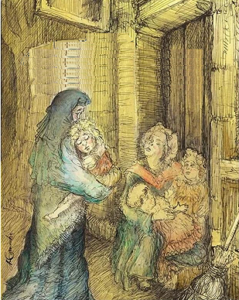 one of the most absurd is the praise of ignorance as if it were an ally of simplicity and humility, from the “cultural” to the religious world this is transformed into narratives: he did not attend college, he did not read a book, did not walk among wise men, etc. Do not confuse this with the ability to live simply and among simple people.
one of the most absurd is the praise of ignorance as if it were an ally of simplicity and humility, from the “cultural” to the religious world this is transformed into narratives: he did not attend college, he did not read a book, did not walk among wise men, etc. Do not confuse this with the ability to live simply and among simple people.
It’s not a sign of the times, it’s not “generational”, it’s just a lack of interest in true asceticism, in an inner and outer growth that gives your human nature that something more that is the only thing capable of removing depression, anguish, anxieties and other illnesses. current.
The wise man is an observer, and observes not only the everyday scenes, those that different types of people live in, especially the simplest ones, but also the one who searches in the history of humanity for those peaks of civilizational moments that made us more people, more human. and more supportively, there are many examples, authors and people who gave us this.
We posted yesterday about fresh water and hot food, but in several regions this has interesting contours and cultural aspects, for example, in many countries there is no breakfast, an African told me, in Portugal there is breakfast which is a breakfast. simple morning, and in Brazil what is called breakfast is actually a small lunch.
What to read beyond is of course your personal belief, read the Bible, the Quran, the Vedas or what is sacred or culturally read in a certain culture, the red book in China for example, the second most read book in Brazil is The little prince, although Paulo Coelho’s The Alchemist is 5th. in the world, but Iliad and Odyssey are still little read, King Lear and Othello by William Shakespeare are increasingly less known.
Of course, wisdom does not mean literary culture, but far from it it also becomes narrative in the sense that it ignores cultural history, the modern model of the novel is present throughout Western culture, and Honoré de Balzac and Gustave Flaubert are representatives for different tastes, but even for social criticism they should be read.
Someone can launch the philosophical argument, it is an entire Eurocentric culture, true, but it has been incorporated into everyday thoughts, nationalism through national colors is all over the world, freedom of expression, as the romantic Victor Hugo (Les Misarables (photo), in my opinion, the best of romantics said: “Not even a rule, nor models” is also an expression of individualism and personal heroism, but historical.
We made several posts about being, interiority and the complement of Contemplative Life with Active Life (Hannah Arendt and Byung-Chul Han in particular), about the methodology of the hermeneutic circle where we must listen to the text (and also the dialogues) for fusion of horizons and also the disaster of our Western culture and the need for resistance of the spirit.
Some fresh water and hot food
While the powerful fight for dominance, colonization and power ignore the lives of simple people, of basic service workers who are necessary in any country and culture because they have forgotten true community and moral values.
colonization and power ignore the lives of simple people, of basic service workers who are necessary in any country and culture because they have forgotten true community and moral values.
They can talk about this in everyday life, but their minds, articulations and efforts are focused on achievements and power, not the achievement of a good friendship, of a few hours of relief and pleasure in a day to day life and in a society that pushes us towards maximum efficiency and fatigue. to the limit of strength.
When hiring some construction service workers, they told me that they would like that in order to work they needed good fresh water and hot food, lunch boxes needed to be reheated and sweat was restored with simple fresh water.
They are also grateful for a dignified treatment and a little rest after lunch, it is incredible that a large part of the affluent society is unaware of these simple things that can bring great happiness, balance and peace, the tired society ignores this.
The centers of power are surrounded by ambitious people who know (or think they know) how to deceive simple people, but they are unaware of the day-to-day lives of these people.
I see when they form conversation circles, the issues and concerns, there are almost always concerns about relationships that are lost, the use of violence and chemicals that permeate their family life, as human values crumble and fall as well. upon them the worst degradations and inhumanities.
A good word, it is also a little fresh water now in a figurative sense, but no less true, true cultures and religions keep this “fresh water” in their thermal jugs and where the food of the soul can be digested and provide energy for everyday life. .
The biblical passage in which Jesus speaks to the crowds, and his family seeks him, he has a surprising answer Mt 12,49-50: “And stretching out his hand to the disciples, Jesus said: “Here are my mother and my brothers. whoever does the will of my Father who is in heaven is my brother, my sister and my mother” “, does not mean that he ignores his family, but he wants to give those people some good food and fresh water.
The world we live in is not ignored, in fact those in power ignore it, but its good to bring a little peace and hope to the souls that survive in a society of tiredness, hatred and neglect.

